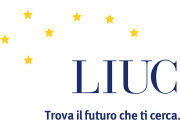EJCE Year: 2020, December. Volume: 17 - Issue: 2
Export-led growth or growth-led exports? Western Europe in the "golden age"
by Andrea Boltho
Start page: 185 - End page: 203
Keywords: Economic growth, Competitiveness, Exchange rates
Jel code: N14; O47
DOI: 10.25428/1824-2979/202002-185-203
Abstract:
It is generally accepted that Western Europe’s exceptional economic performance in the so-called “Golden Age” (1950-73) was primarily due to a catch-up process as countries combined their surplus labour with imported American technology to (partially) close the gap in per capita incomes with the United States. The evidence supporting this hypothesis is very strong. It does not, however, explain all of the post-war experience. Several European countries performed better (or worse) than might have been expected on the basis of catch-up alone. To explain such discrepancies, some authors have stressed the importance of exports rising at above average rates and, via multiplier and accelerator effects, generating a virtuous circle of reinforcing growth. The paper investigates this issue. It eschews formal “Granger causality” tests which, more usually than not, hide rather than reveal information about a country’s experience and relies instead on three less formal approaches: i) A look at exchange rate developments to see whether persistent undervaluation was present, thereby benefiting particular countries; ii) An examination of export price and quantity changes to try and detect whether shocks came from the demand or the supply side; iii) An investigation of the commodity and geographic composition of exports to assess whether some countries benefited from a favourable pattern of specialization. On balance, there seems to be little evidence for the export-led growth hypothesis: only Germany stands out as a likely exception to this general rule.
Publisher perpetually authorizes participants in the LOCKSS system to archive and restore EJCE articles through the LOCKSS System for the benefit of all LOCKSS System participants. EJCE is registered as OAI-PMH data provider. OAI - Records check.
EJCE, 2018- : Registro stampa Trib. Busto Arsizio n. 7/18 del 13.07.2018; Direttore responsabile: Laura Ballestra, Università Carlo Cattaneo - LIUC c.so Matteotti 22 20153 Castellanza VA
EJCE, 2004-2017: Supplemento a LIUC Papers, Registro stampa Trib. Busto Arsizio n. 11/93 del 11.06.1993; Direttore responsabile: Laura Ballestra, Università Carlo Cattaneo - LIUC c.so Matteotti 22 20153 Castellanza VA

